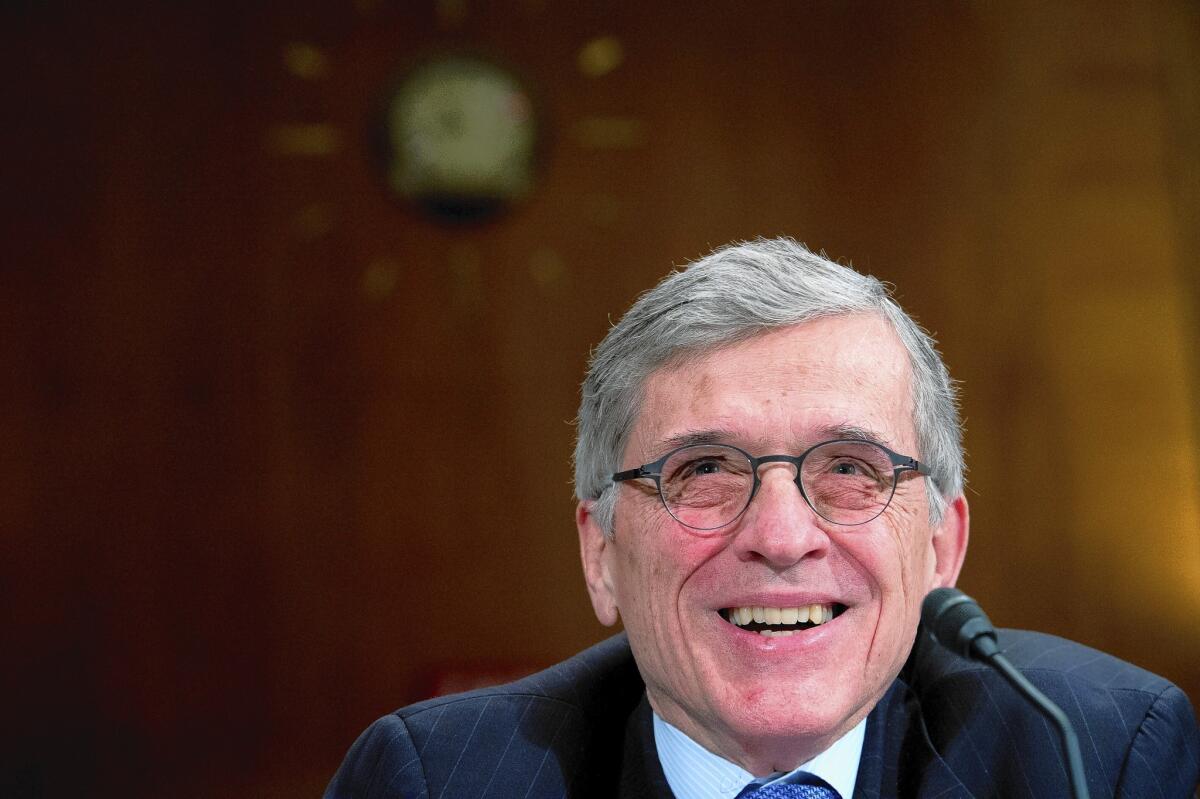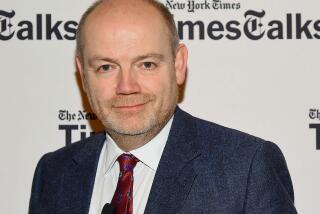FCC chairman proposes new net neutrality rules

WASHINGTON — Netflix Inc. and other Internet companies may soon be able to pay for a faster road online for streaming movies and other content into customers’ homes, raising concerns about who ultimately may end up with the bill.
The nation’s top telecommunications regulator, breaking with his agency’s long-standing position, will propose new rules that would allow broadband network owners to sell a high-speed toll road for content providers, the Federal Communications Commission said Wednesday.
FCC Chairman Tom Wheeler is expected to propose the preferential online superhighway as part of a set of rules that promote network neutrality, the concept that broadband network owners should treat all similar content equally and not block any legal content.
Only the outlines of the proposal were disclosed, but consumer advocacy groups criticized it immediately.
“If it goes forward, this capitulation will represent Washington at its worst,” said Todd O’Boyle, program director of Common Cause’s Media and Democracy Reform Initiative.
The proposed net neutrality rules would allow Internet service providers to enter into negotiations with companies willing to pay for faster downloads and streaming of movies, videos and even Internet video calling, such as Skype’s service.
In addition, the rules would require network owners to provide a baseline level of service to subscribers, though the FCC didn’t define how fast that level would be. The proposal also would prohibit blocking legal content.
The broadband providers would have to act in a “commercially reasonable manner” and their actions would be subject to review by the FCC on a case-by-case basis if they want to charge more for delivery of content over the so-called last mile of distribution to homes and businesses, the agency said.
The rules would apply mainly to content delivered over wires or fiber-optic lines, though some would apply to wireless service as well. The provision for the preferential superhighway is aimed only at wired connections.
Wheeler said he would circulate the proposal to the agency’s other four commissioners Thursday. He plans a vote at the FCC’s May 15 meeting that would start the rule-making process and allow the public and industry to submit comments on the plan.
Wheeler rejected suggestions that the proposal amounted to major policy shift. “There are reports that the FCC is gutting the open Internet rule,” he said in a statement issued Wednesday night. “They are flat-out wrong. ... There is no ‘turnaround in policy.’ The same rules will apply to all Internet content.”
The proposal comes after courts twice have rebuffed the FCC’s attempts to set rules for the Internet to ensure that it remains open and free of interference from broadband providers, which might want to give preference to their own content.
Wheeler, a Democrat who took over the FCC in November, has said he is committed to an open Internet.
“The Internet is and must remain the greatest engine of free expression, innovation, economic growth and opportunity the world has ever known,” he said in February.
Public interest groups have long argued that consumers will end up paying for such preferential services as a separate, higher-priced online delivery system.
They also complained Wednesday that Wheeler’s proposal would open the door for Internet providers such as AT&T Inc. and Verizon Communications Inc. to become the gatekeepers of Web services, dictating what users can see and do online.
The proposal would allow broadband companies “to impose a new price of entry for innovation on the Internet,” said Michael Weinberg, vice president of Public Knowledge, a digital rights group.
O’Boyle said Wheeler’s plan was “net neutrality in name only.”
“Americans were promised, and deserve, an Internet that is free of toll roads, fast lanes and censorship — corporate or governmental,” he said. “If Wheeler’s rules deliver anything less, that would be a betrayal.”
The opposition of public interest groups could signal a problem for Wheeler in getting the support of his two fellow Democrats.
Net neutrality is strongly supported by liberals who fear the clout of large Internet providers. President Obama made the issue a key part of his 2008 campaign.
But Republicans strongly oppose net neutrality, arguing the Internet has been able to grow dramatically because it largely has been free of federal regulation.
AT&T and Verizon have been among those pushing the FCC to allow more flexibility for deals with companies to deliver their content.
A key part of Wheeler’s proposal will be how the FCC determines what a baseline level of service would be, how the agency defines a commercially reasonable standard and how disputes would be resolved, the agency said.
More to Read
Inside the business of entertainment
The Wide Shot brings you news, analysis and insights on everything from streaming wars to production — and what it all means for the future.
You may occasionally receive promotional content from the Los Angeles Times.










